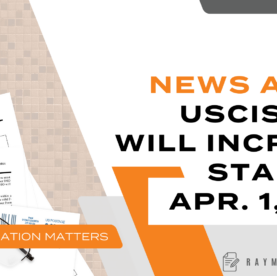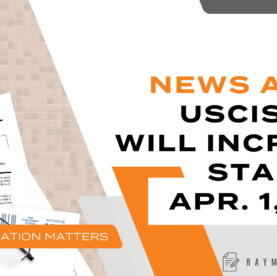Businesses at Tourist Locations Face Foreign Worker Shortages

Businesses in busy tourist areas, which count on summer months for the spike in travelers, are struggling to hire sufficient workers to meet their high labor demand. Employers are feeling the slump in workers the hard way, as COVID-19 restrictions are being relaxed and most states have fully reopened.
Most employers in such tourist areas rely on temporary workers from abroad to meet the surge in seasonal demand. Unfortunately, the travel bans and restrictions for several countries, closed consulates, and a limited pool of H-2B seasonal visas make it even harder for employers to find labor. The worker shortage has forced restaurants and hotels to operate with reduced hours or close certain days each week.
Tourist Businesses Lobby Congress for Increased Limit on Foreign Workers
Employers desperate for labor are lobbying Congress to expand the number of non-immigrant workers’ visas. The hospitality and leisure industry took the maximum hit during the pandemic, losing 2.5 million jobs from early last year.
“There simply are not enough workers to fill those slots,” said Lynn Minges, President and CEO of the North Carolina Restaurant and Lodging Association. “And there are a number of factors that contribute to that but obviously one of those is the challenge in getting immigrant workers to fill some of the jobs.”
Kings Dominion, a Virginia amusement park 75 miles south of Washington, D.C., for instance, had to delay its opening by a month due to the labor shortage. “Our folks are getting killed out there with regards to the labor shortages, it’s the biggest impediment to our industry’s recovery at this point,” said Robert Melvin, Director of Government Affairs for the Virginia Restaurant, Lodging & Travel Association.
Some Feel Temporary Immigrant Workers Undermine Employing Americans
People against employing foreign workers say that temporary seasonal workers take jobs away from American workers, can undercut U.S. wages, and could lead to exploitation. Bipartisan senators Dick Durbin (D-Ill.) and Chuck Grassley (R-Ill) said a work visa expansion announced by President Joe Biden in April was premature.
Many analysts are skeptical about reaching out to foreign labor to bridge the void in the labor industry because millions of U.S. workers remain unemployed post-pandemic.
Labor Shortage Despite Increase in H-2B Worker Visa Limit
Many tourist businesses, including restaurants, retailers, theme parks, and other industries, that look forward to their summer months for increased profits, have been pressing Congress to increase the limit on guest workers permitted in the U.S. under the H-2B seasonal guest worker visa. H-2B visas typically bring workers in the fields of agriculture, warehousing, seafood processing, and forestry, as well as various other jobs outside the field of agriculture.
H-2B visas have an annual cap of 66,000, which is way lower than the actual demand for such workers. The Biden administration increased the cap on H-2B temporary workers by 22,000. The inability of U.S. consulates in foreign countries to timely process foreign worker visas is another reason for the ongoing shortage. The consulates are either closed or only partially functioning for visa processing.
“The impact on the economy cannot be positive,” said Richard Burke, CEO of Envoy Global, an immigration management company. “All sorts of industries are impacted because of this sort of perfect storm of surging demand, constricted [labor] supply, and uncertainty about supply.”
To learn more about this blog post or if you have any other immigration concerns, please feel free to contact me at rglahoud@norris-law.com or (484) 544-0022.





